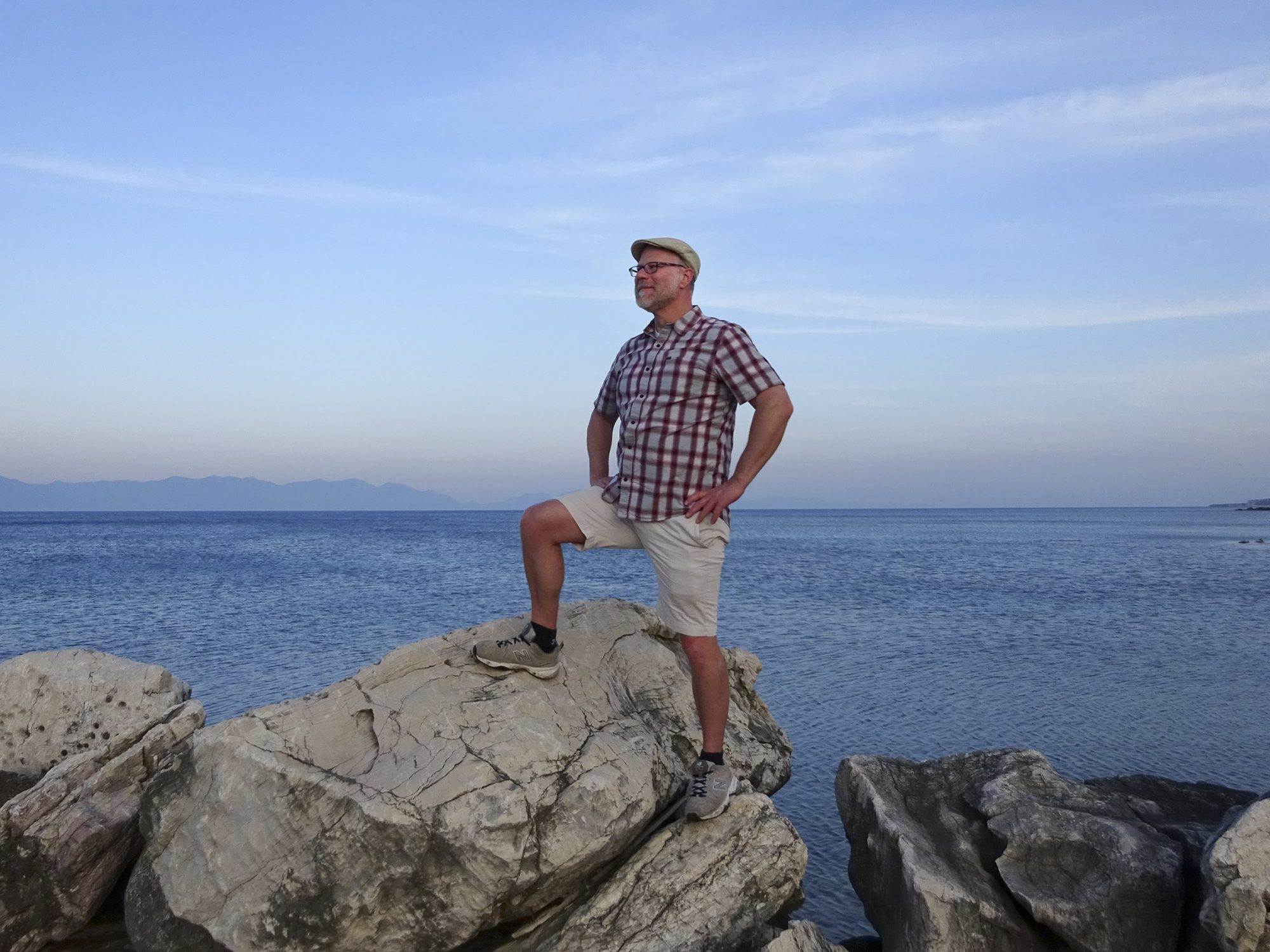My sister Carol, her husband Bruce, and their daughter Megan have been visiting. Carol’s branch of the family tree is the calmest and most stable. She married an even calmer person than she, and they produced this really calm daughter. I love it when they visit–they’re interested in everything, and are engaging and warm.
Saturday I took them and BC to see Edward Albee’s The Goat, or Who is Silvia? at ACT. It’s an amazing play, about a man who falls in love with a goat. Martin is happily married, has a teenage gay son, and has just won the Pritzker Prize. Everything seems perfect. But during a taped interview with his best friend, he reveals that he’s in love with a goat. The play is a contemporary classical tragedy, with a suitably tragic and horrific ending. Most of the play consists of him explaining to his wife about his other love, while the wife breaks large vases and overturns furniture, the house physically falling apart around them. Martin doesn’t understand why people can’t see beyond their moral boundaries. Yet he’s always correcting people’s spoken english, refusing to let them deviate from proper grammatical usage. His son’s a mess–Billy, as in Billy the “kid,” Billy Goat. Billy’s like a little undeveloped version of his dad. His sense of morality becomes confused by his father’s transgression: an embrace between father and son turns into an erotic kiss, emphasizing the son’s confusion about sex and love. It was clever to have the son be gay, with homosexuality so recently thought of as a pathology, leading us to think that there is something wrong with us in not understanding a love that’s foreign to our experience. I wish I could talk about the ending, but for those of you going to see it, I won’t spoil it for you–although halfway through I leaned to Megan and said, “Blank-ety has to blank Blank.” It’s the only way it could have ended, and when Blank-ety does blank Blank, the tension that has been building is tossed onto center stage and pops like an aneurism.
Okay, off to BC’s to watch Who’s Afraid of Virginia Woolfe to round out the Edward Albee experience.
